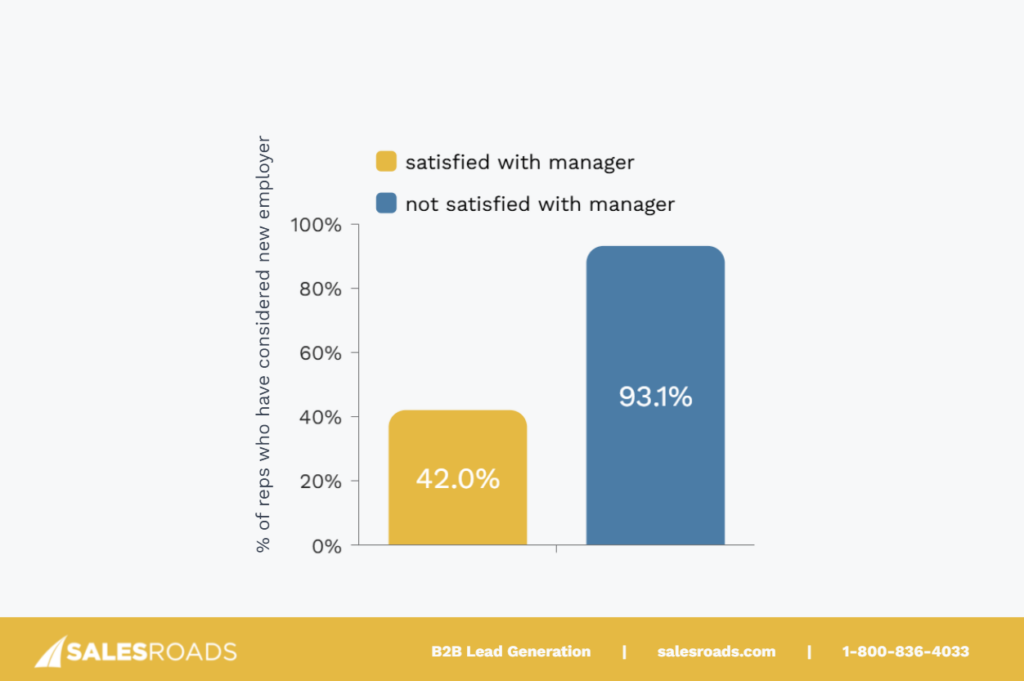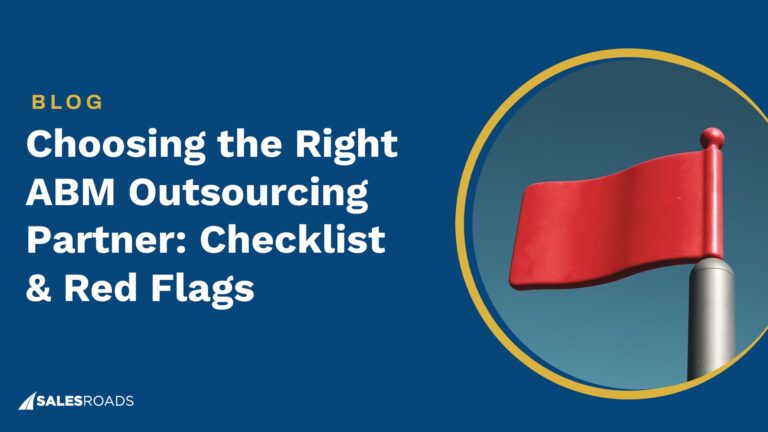You can’t fake motivation, and you definitely can’t force it. Around the world, only 15% of employees report feeling motivated, showing it’s a global issue across all industries and markets.
If your team’s missing targets or running on fumes, the problem might be that your reps aren’t motivated the right way. And in sales, that makes all the difference.
Today’s top sales teams are built on smart strategies that drive long-term energy, not short-term hustle.
From performance improvement plans that actually work to sales incentives and rewards reps care about, this article breaks down how to motivate sales reps and boost morale without burning your team out.
Spot the Underperformance Signs Before It’s Too Late
Even your best reps can hit a slump, but the key is noticing it early. When sales motivation dips, the warning signs show up in subtle ways before the numbers tank.
If you want to boost morale and performance, it starts with spotting the shift and acting fast.
Early Indicators of a Motivation Drop
A lack of motivation rarely shows up overnight. It builds gradually, often masked by surface-level activity that doesn’t drive results. If you’re not paying attention, you could miss the chance to intervene early.
Start by tracking engagement in team meetings and 1:1s. Is a once-vocal rep suddenly quiet? That’s often one of the first signs.
You might also notice reps missing internal deadlines, turning in sloppy CRM entries, or failing to follow up on warm leads. These behaviors signal disengagement, not just disorganization.
Low response to sales incentives and rewards can also point to a deeper issue. If your reps aren’t lighting up when contests or bonuses are announced, it’s time to ask why.
Impact of Low Energy on Sales Numbers
When motivation dips, performance follows. A disengaged sales rep won’t hit numbers, no matter how talented they are. Low energy spreads fast, and if not addressed, it can tank your entire team’s morale.
Low energy doesn’t just mean tired faces on Zoom. It means fewer cold calls, shorter discovery calls, and weaker follow-ups. You’ll see a dip in pipeline activity before it hits your revenue numbers.
And once deals start slipping, the pressure rises, making it even harder to bounce back without a targeted strategy.
Motivation drives performance, and when employees feel motivated, their workplace performance improves by 20%, suggesting a strong correlation between motivation and enhanced productivity.
How to Motivate Sales Reps The Right Way
Motivation isn’t a one-size-fits-all playbook. To truly engage your team, you need to understand what drives each rep, what’s holding them back, and how to align their goals with yours.
When you miss that alignment, it’s not just your revenue that takes a hit; your retention suffers, too.
In a white paper by SalesRoads, we found that SDRs who felt unsupported by management were more than twice as likely to consider leaving.

A staggering 93.1% of reps without strong managerial support had thought about quitting, compared to just 42% of those who felt backed by leadership.
So, how do you keep your reps engaged, motivated, and committed? Here are proven strategies to help you do exactly that:
1. Start with the Right Conversations
Motivating sales reps starts with listening, not telling. When a rep’s performance drops or their energy dips, the fix isn’t always a pep talk; it’s often a conversation they’ve been waiting for.
Get curious. Ask what’s changed. Don’t assume it’s just about money or effort.
Sales leaders who take the time to ask thoughtful questions build trust. And trust leads to honesty, the foundation of any performance improvement plan that actually works.
Your goal isn’t to fix your team in one meeting. It’s to open a door that helps them re-engage with purpose. That’s how you start boosting sales team morale the right way.
David Kreiger, founder of SalesRoads, shared a story about his very first sales rep, who was unmotivated and underperforming when he needed new business the most.
His initial approaches failed until he discovered the one thing that finally turned it around:
1:1 Check-Ins that Actually Work
One-on-ones can either feel like a waste of time or a turning point. It all depends on how you show up.
If your check-ins are just pipeline reviews, you’re missing the point. These conversations should be safe spaces where reps can speak honestly about challenges, goals, and what’s motivating (or demotivating) them.
Skip the script. Ask open-ended questions like:
- “What’s been feeling heavy lately?”
- “What’s one thing you wish we’d stop doing?”
- “Where do you feel you’re falling short, and why do you think that is?”
Make these check-ins consistent. When reps know they have a space to be heard without judgment, they’re more likely to open up before issues become performance problems.
Use these sales meetings to realign expectations, reinforce your support, and create shared accountability.
Rebuilding Trust Without Sugarcoating the Problem
Trust and honesty go hand in hand, but in sales, we often tiptoe around performance issues to avoid making things worse. That’s a mistake.
If you want to boost sales team morale and drive real change, you need to be direct without being harsh.
Start by being transparent about what you’re seeing: missed numbers, low energy, or lack of engagement. Then follow it with curiosity instead of criticism.
Reps don’t want to be coddled, but they do want to know you’re on their side. The best conversations blend accountability with support.
This is also the right time to discuss your performance improvement plan, not as punishment, but as a structure for success. Lay out the expectations, check-in rhythm, and what success looks like. Then follow through.
2. Create a Performance Improvement Plan that’s Actionable
The best performance improvement plans aren’t about micromanaging; they’re about motivating sales reps by giving them a path forward.
Whether it’s a top performer who’s lost steam or a new hire who hasn’t found their rhythm, your PIP should identify the gap, provide the support, and set measurable checkpoints. It’s one of the most effective tools for performance recovery—when it’s done right.
Is It a Skill Gap or a Role Mismatch?
Before creating a performance improvement plan, you need to diagnose the real issue.
Not every underperforming rep is lazy or disengaged; many are simply in the wrong role or lacking the right skills. If you don’t know which one you’re dealing with, you risk solving the wrong problem.
Start with shadowing. Watch their calls. Review their emails. Do they struggle with discovery? Objection handling? Closing?
That’s a skill gap, and it’s coachable. If they’re strong communicators but consistently fail to convert leads, it might be a process or positioning issue.
On the other hand, if they love account management but not cold outreach, maybe it’s time to rethink where they fit best.
You’ll boost sales team morale by making sure people are in roles where they can succeed. And you’ll waste less time trying to fix what isn’t broken, just misaligned.
Performance Improvement Plan Sales Teams Can Actually Follow
Too many performance improvement plans get lost in the weeds. They’re too long, too vague, or too focused on what went wrong. A good PIP is simple, actionable, and built for execution.
If your goal is motivating sales reps, give them a clear roadmap, not a lecture. Start by outlining three things: the issue, the goal, and the path. Be specific.
Include built-in check-ins. Weekly 15-minute reviews help track progress, offer feedback, and build momentum. And don’t forget the positive reinforcement. Celebrate small wins to boost morale and rebuild confidence.
Finally, don’t just tell reps what to do, ask them what they need. Support goes both ways. When your sales team feels involved in the process, they’re more likely to buy in and follow through.
3. Make Morale a Priority, Not a Perk
If you want consistent performance, you have to make morale a daily priority, not an occasional bonus.
Motivating sales reps isn’t just about offering big incentives or running flashy contests. It’s about creating a culture where your team feels heard, supported, and valued every single day.
Sales success depends on mindset, and that starts with how you treat people when things aren’t going perfectly.
Simple Moves for Boosting Sales Team Morale
You don’t need a massive budget or a culture consultant to start boosting sales team morale. Small, intentional actions go a long way, especially when reps feel pressure from every angle.
Start with the basics: recognition, trust, and meaningful feedback.
Celebrate the effort, not just the wins. Did someone recover a deal that was going cold? Did a new rep hit their first demo goal? Highlight it in Slack. Mention it in the team huddle.
Also, don’t underestimate the power of listening.
In this episode of the Sell Like A Leader podcast, David Kreiger interviews Erin Dues, who shares that great leadership starts with a listening tour. By truly understanding team dynamics, leaders gain authentic insights and uncover the root of motivation issues.
Erin also emphasizes the importance of radical candor, leading with both care and challenge. It’s not about sugarcoating; it’s about giving feedback that supports growth.
When reps feel understood and supported, they show up with more energy, confidence, and ownership. And that’s the kind of morale that sticks.
Give it a listen here:
Why Team Culture Often Breaks Before Results Do
Motivating sales reps requires more than quota pressure. It demands a culture where people feel empowered to speak up and safe to fail forward.
When your team believes leadership has their back, they take more initiative and recover faster from setbacks.
That’s why culture work isn’t just an HR responsibility; it’s a frontline sales strategy.
Leaders who invest in culture early build teams that outperform over time. They don’t just fix numbers; they prevent breakdowns before they happen.
4. Redesign Incentives to Reward Effort and Progress
Sales leaders often turn to SPIFFs as their go-to tactic for motivating sales reps. And while short-term contests can give a temporary boost, they’re not a long-term solution.
Sales incentives and rewards should reinforce the behaviors that lead to sustainable success, not just a quick win.
True motivation comes from helping reps build discipline. If your sales team only works harder when cash is on the table, you’ve got a short-lived system. SPIFFs fade, and so does performance.
David Kreiger shares why discipline beats SPIFFs:
To really boost sales team morale, you need to reward progress, consistency, and smart effort, not just closed deals.
Smarter Sales Incentives and Rewards
Not all rewards are created equal. The smartest rewards recognize effort, not just end results.
Try creating milestone-based incentives that celebrate progress, like reaching a certain number of high-quality conversations, scheduling demos, or submitting detailed account research.
These are the building blocks of future deals and a great way to keep newer reps engaged.
Also, consider introducing peer-nominated awards. Let your team call out who’s showing up strong on calls, in team meetings, or supporting others. Recognition from teammates often carries more emotional weight than another $100 bonus.
And finally, make your rewards feel personal. If someone values professional development, offer access to a sales training program.
If they’re motivated by time, reward them with an afternoon off.
When Cash Bonuses Backfire
There’s nothing wrong with offering cash bonuses until they become the only reason your reps push. That’s when motivation turns transactional, and discipline takes a back seat.
Cash-heavy systems can also create a winner-takes-all culture. Instead of boosting morale, they fuel unhealthy competition, where reps start hiding leads, hoarding resources, or burning out chasing short-term wins. That’s not how you build a sustainable sales team.
Worse, overuse of bonuses can distort your performance improvement plan. Reps may start chasing short-term metrics at the expense of learning and development.
You’ll see them chasing deals that aren’t a good fit, just to grab that extra payout, leaving long-term pipeline health at risk.
Motivating sales reps means striking the right balance. Use bonuses to reward true milestones or exceptional performance, not as a crutch to drive basic effort.
5. Build a Motivation Strategy That Sticks
Too many sales teams rely on bursts of energy from contests or SPIFFs, only to see motivation crash when the excitement fades.
If you want to build a high-performing team, you need a system that supports consistency.
Avoiding the Yo-Yo Effect in Team Performance
One of the most common issues in sales management is the “yo-yo effect,” where performance spikes one month, then drops the next.
This cycle usually means that motivation isn’t being managed proactively. Instead of waiting for numbers to dip before reacting, you need to design a system that keeps your team steady and focused.
Start by defining what consistency looks like. It’s not just about deals closed; it’s about the inputs: outreach, conversations, pipeline development, and attitude.
Track those early indicators and celebrate them, not just the final revenue number.
Then look at your motivation levers. Are they sustainable? Focus on reinforcing habits, setting short-term achievable goals, and providing coaching along the way.
A strong performance improvement plan helps here, too. Use it not just for struggling reps, but as a structure to help every rep improve incrementally.
That’s how you avoid burnout, build resilience, and boost morale that lasts all year.
Make Feedback Cycles Ongoing, Not Just Occasional
Feedback shouldn’t only happen in quarterly reviews or when something goes wrong. Reps should know where they stand and feel empowered to speak up about what’s working and what’s not.
Try implementing weekly micro-feedback sessions during your 1:1s. Don’t wait until the end of the month to say, “You’re off track.” Use real-time data and call reviews to coach in the moment.
Equally important: ask for feedback from your team. What’s slowing them down? What tools or messaging feel outdated? You’ll be surprised how many small fixes can unlock performance improvements.
Sales incentives and rewards are helpful, but feedback is the foundation. When reps know their effort is noticed, and that you’re invested in their success, they stay motivated longer.
Bottom Line
If you want real results, don’t just push for performance; build a system that fuels it. Motivating sales reps the right way means creating a culture of consistency, not just intensity.
When you focus on clarity, feedback, and meaningful incentives, you don’t just boost morale; you build a sales team that knows how to win and keep winning.










